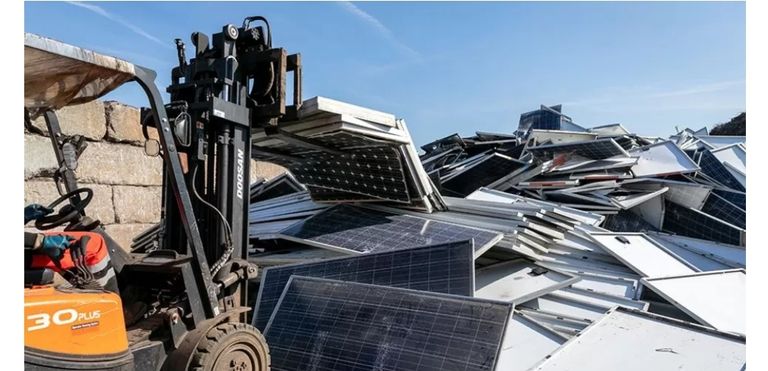Solar panels have gained significant attention as a clean and renewable energy source a cheap source for reducing risk of carbon emissions by harnessing energy from the sun and generating electricity without burning fossil fuel to combat climate change, offering a promising alternative to fossil fuels. However, as with any technology, it is essential to examine the complete picture and understand the environmental impact of solar panels. According to survey carried out by experts every solar panel have a lifespan of 20-30 years which draws a major concern of means of eventually disposing these panels when they are no longer useful, billions of panels have been installed in various homes, industries, farms and other sectors there will be need for replacement and disposal in near future without proper channel of disposal they will contaminate living habitats in soil affecting agricultural activities and land conservation as well as water.

According to Dr Rong Deng an expert in solar panel recycling at the university of new south Wales Australia, over 2.5 billion panel have been installed on rooftop with a solar capacity of more than one terawatt. Source the challenging problem experts are facing is how to recycle them as infrastructure to carry out this task are lacking, there is need for government to look into this renewable energy source and improvise a lasting solution before it becomes a global looming disaster.
Recycling solar panel parts can be challenging with its components like glass, silver and aluminium which are not easily decomposed without undergoing industrial processe, as more millions of solar panels are produced yearly means of dealing with solar panel waste need to also be available, a step to tackle this problem have been initiated to take place this June in France which is dedicated for fully recycling solar panels it is expected a new solution will be available to help alleviate this problem of solar panels waste.
Recycling challenge
There have not been batches of recycled solar panels since production season this has been one of the reasons it has been quite a challenging issue for the recycling industry to introduce best means of recycling solar panels, first generation solar panels will be recycled years from now and to expect the uncertain necessary plans need to be put in place to avoid environmental disaster.
More experts from around the world have been developing techniques for this process with France being the major lead to have advanced in providing means for extracting important materials from used solar panels waste below are some recycling challenges outlined by experts in the industry.
Lack of infrastructure this is a major problem for solar panel, recycling with limited infrastructure for carrying out proper recycling at large scale. Many regions lack specialized recycling facilities equipped to handle the increasing volume of decommissioned panels. Establishing an efficient recycling infrastructure is crucial to handle the growing number of solar panels.
Complex Material Composition materials like aluminium, glass, silicone cells, polymer and other metal make up a solar panel separating these materials is a major challenge for the recycling industry and also requires good amount of capital, some solar panels contain harmful material like lead improper disposal can lead to environmental contamination.
In Conclusion
In other to address these challenges collaboration between industry and researchers to develop innovative recycling technologies need to be worked on, improve collection systems, establish regulations and standards, and raise awareness among consumers. By overcoming these challenges, we can promote the sustainable growth of the solar industry while minimizing its environmental footprint in near future.
Reading References
Solar panels - an eco-disaster waiting to happen?
Dark Side To Solar? More Reports Tie Panel Production To Toxic Pollution